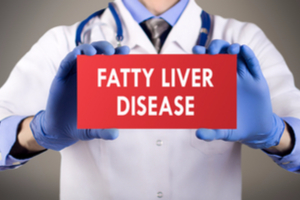 The health of your heart is dependent upon your cholesterol levels. Therefore, it’s pretty frightening that you can have dangerously high bad cholesterol levels and NO symptoms. High blood cholesterol puts you at a greater risk for coronary heart disease and stroke.
The health of your heart is dependent upon your cholesterol levels. Therefore, it’s pretty frightening that you can have dangerously high bad cholesterol levels and NO symptoms. High blood cholesterol puts you at a greater risk for coronary heart disease and stroke.
What Is A Cholesterol Screening?
A cholesterol screening involves taking a small blood sample from your arm. From this small amount of blood, a lab can test your levels of high-density lipoprotein (HDL), low-density lipoprotein (LDL), cholesterol and triglycerides.
Your test report is read in milligrams per deciliter of blood (mg/dL). Your cholesterol levels are analyzed with consideration of other factors, such as your age, family history, if you smoke or have high blood pressure.
Once your results have been analyzed, a healthcare provider will discuss them with you. This is the time to create a plan of action to treat unhealthy cholesterol levels. Lifestyle changes and/or medication may be necessary to treat the problem.
How Often Should You Get Your Cholesterol Screened?
According to the American Heart Association, if you are 20 and older and have never been diagnosed with cardiovascular disease, you should have your levels checked once every 4-6 years.
If you are at a heightened risk for developing cholesterol problems, you may need to have screenings conducted more often. The time between cholesterol screenings should be personalized to you in regards to your cholesterol levels, overall health, and your risk for heart disease. For instance, adults actively undergoing treatment for high cholesterol require more frequent screenings.
In some cases, teens as young as 17 should have their cholesterol tested if they are at an increased risk. Doctors may recommend cholesterol screening for children based upon family history, age or a physical exam.
The US Preventative Services Task Force suggests cholesterol screenings for:
-Men that are 35 and older
-Men between 20 and 35 with heart disease risk factors
-Women 20 and older with heart disease risk factors
What Causes High Cholesterol?
Your blood is constantly carrying cholesterol attached to proteins throughout your body. The combination of proteins and cholesterol are known as a lipoprotein. There are different types of cholesterol dependent upon the type of cholesterol a lipoprotein is carrying. These types include:
-Low-density lipoprotein (LDL): This is the “bad” type of cholesterol that builds up in your artery walls, causing them to harden and narrow.
-High-density lipoprotein (HDL): This is the “good” type of cholesterol that picks up excess cholesterol and moves it to the liver where it can be discarded.
You want healthy levels of both low-density and high-density lipoproteins. Both factors in and out of your control can lead to high levels of bad cholesterol and low levels of good cholesterol. Factors in your control include diet and lifestyle. Uncontrollable factors include your genetic makeup, which can predisposition you to producing too much bad cholesterol and not enough good cholesterol.
Risk Factors That Make You More Susceptible to High Cholesterol
-Your diet is high in saturated fats (animal products, some crackers, cookies, etc.)
-Your diet is high in cholesterol (red meat, full-fat dairy products, etc.)
-You are obese, or have a total body mass index (BMI) that measures 30+
-Large waist circumference, anything over 40 inches for males and over 35 inches for females
-You do not exercise regularly
-You smoke
-You have diabetes
Do I Have To Fast Before My Cholesterol Screening?
In order to get a full reading, you’ll need to fast between 9 and 12 hours leading up to your blood test. If you do not fast, the only usable values will be total cholesterol and HDL cholesterol. Your LDL (bad cholesterol) level and triglycerides are impacted by anything you eat before your blood test. A doctor will tell you if you need to fast before your blood test, and for how long.
Where Can I Get My Cholesterol Tested?
Urgent Medical Center proudly offers cholesterol screenings. Call us, schedule an appointment online or just walk right in! We’re happy to help you proactively monitor your health.
What About Free Public Cholesterol Tests?
While public cholesterol tests can be convenient and fast, they are often redundant. A doctor will usually want to verify test results before making a final diagnoses and putting you on medication. Since there are so many other factors to heart health, it’s highly recommended that a doctor evaluate all risk factors during a full physical exam.
The actual reliability of tests conducted at public cholesterol screenings (often held at fairs, malls, drugstores, grocery store parking lots, etc.) is dependent upon so many variables you can’t control, like:
-The type of blood sample taken
-The type of equipment utilized
-The way that the equipment is used, if it is used correctly
-The training and background of the technician




